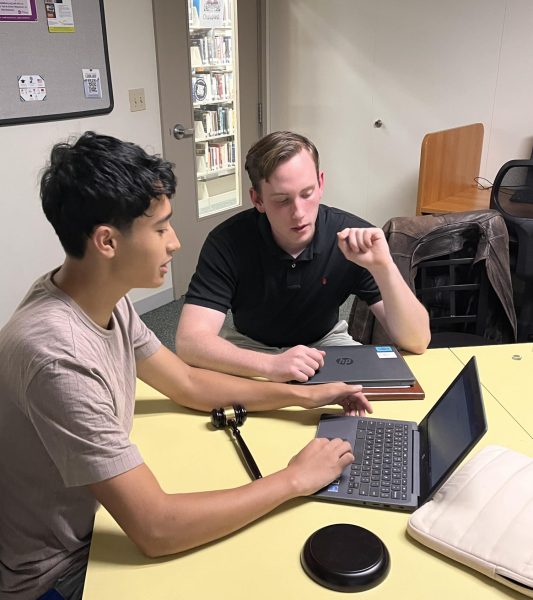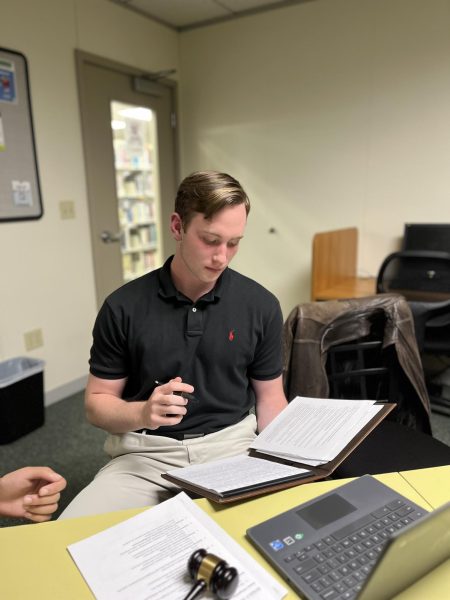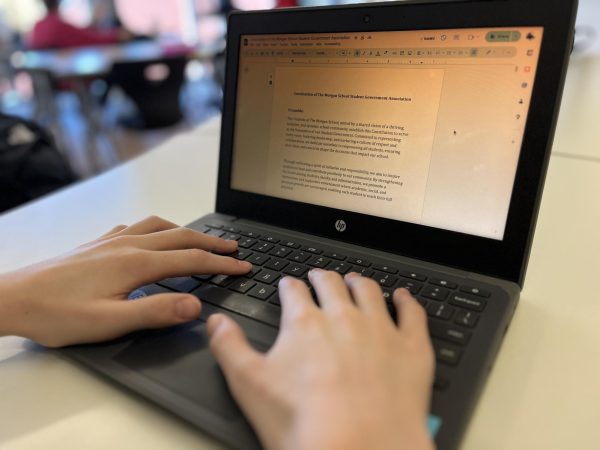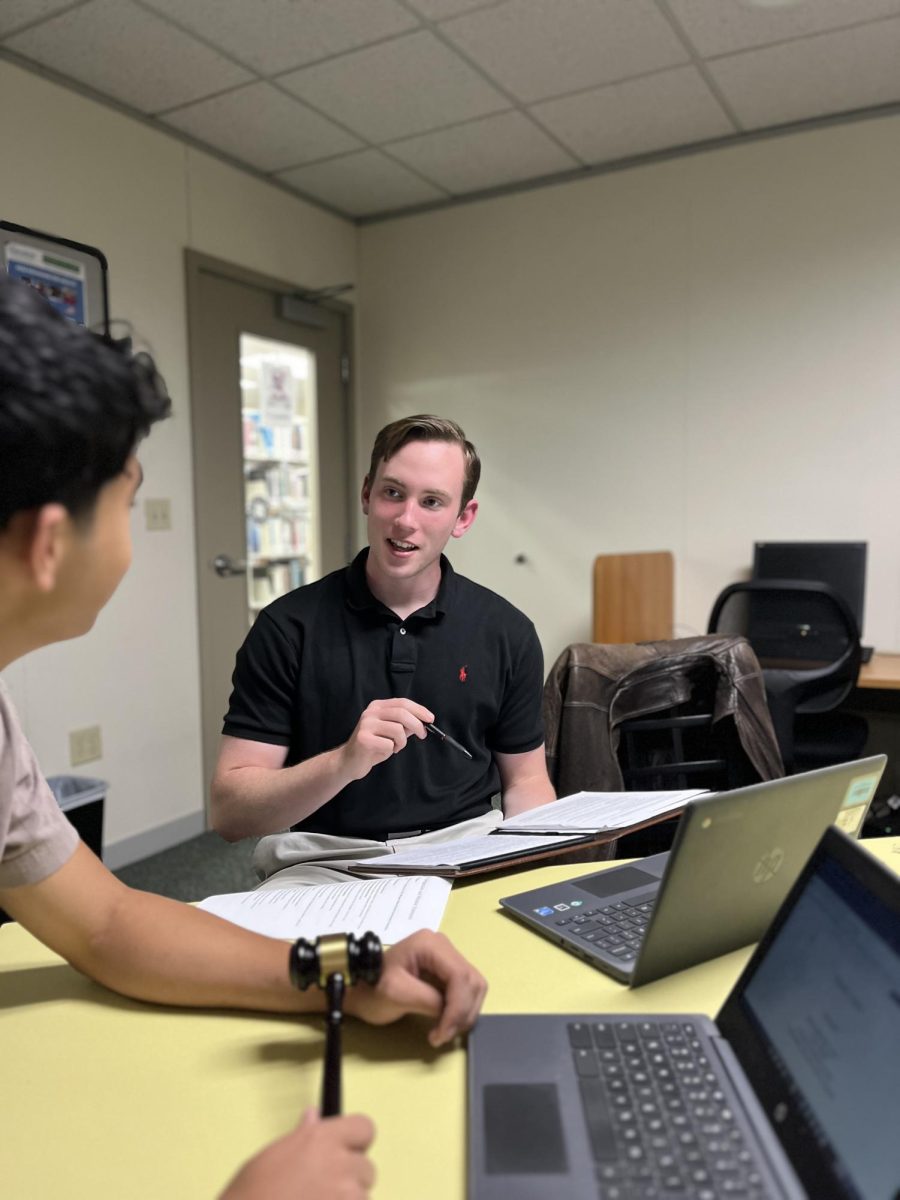Over the summer, Student Body President, Mason Jakober, drafted a new student constitution — one that aims to create a legitimate student government, deserving of its title, that effectively represents all student voices. The constitution was thoroughly reviewed and edited at the Henry Carter Hull Library by the student government constitutional subcommittee, who strive to have this new constitution be ratified for The Morgan school in the near future.

As observed by members of student government, including Mason Jakober, many students here at Morgan do not actively pursue change because they believe their voice isn’t powerful enough, leading to only a very small minority which actually pursue changes independently. So, the current bylaws in student government, which act as the amended backbone of the constitution, assure that the constitution outlines a representative structure to include students’ voices in decision-making. As stated by the advisor, Spanish Teacher, Laura Luther, “[the constitution] primarily affects every member of the student government…grades nine through twelve.”
The constitution’s primary purpose is to address long-standing issues, which fundamentally counteracts the lack of power commonly associated with student government. Essentially, the document seeks to create a coherent pathway for collective student action, as well as emphasizing the importance of student governance and increasing student engagement. Jakober is hoping this would make the Student Government more effective and trustworthy, providing students and government members more of a voice.
Jakober stated, “The constitution forges a pathway that focuses student voice into a spearhead of change, so we can act collectively to develop a platform that coherently supports and represents every student.”
When asked why this project is so important to him, Jakober said, “since the sixth grade, I’ve always disagreed with how student governments are run. Our structure is married with errors and inconsistencies that limit the effectiveness of student voice. It’s my charge to ensure every single student is represented, and that our voice is brought to the decision-making table.”
The current staff advisor, Mrs. Luther, is working with him to build this product. “Mason Jakober attended youth leadership camp… and he really felt passionate about revising the Constitution or trying to adopt a new one… He and I have been working together to try to put in some of the changes that he would like to see, alongside the student government.”
Mrs. Luther herself has played multiple critical roles in the development of the constitution, in both its fabrication, and its journey to be ratified. Overseeing and updating the constitution, she describes herself as its keeper. In her eyes, the constitution means more than just a document.
“We wanted to have students be able to understand how a government actually runs before they graduate from Morgan. It’s not only to give us legitimacy, but also to teach the students what government is all about while in action… It’s a policy like how we’re supposed to run meetings, and how we’re supposed to run committees.”
The reason that the constitution is not ratified yet is because, according to Jakober, the administration believes that the document is too complicated. Being a staggering forty-three pages long, Jakober said that the administration has been delaying the process, despite strong student government support.

“The student government almost unanimously supports it. I, nor the constitutional committee, have received any complaints about the substance or changes brought about by the document.”
Mrs. Luther disagreed with the delay, stating, “The nuts and bolts of the Constitution are far from being in stages where they would be ratified by the whole student government culture. We’re just really working on the committee pieces of the Constitution and getting those a step more established.”
The Morgan School Principal, Keri Hagness, claims many reasons for why she hasn’t agreed to ratify the constitution. She wishes for the constitution to be a collaborative document, created by both staff and students, as opposed to unilateral drafting by only the students before seeking approval. In addition, Ms. Hagness suggested that the constitution is too long and too complex, possibly being too formal for its purpose, stating, “I think the length is really where my issue is. We need to condense it, making it more simple for people to understand, and truly represent what the spirit of student government should be. We already have bylaws… we don’t need forty pages of something to be able to act.”
Mrs. Hagness recommends that the constitution aim to be an actionable document that complements the existing bylaws, and aligns with student government’s mission and vision. “I think the bylaws support a lot of the things that he wants to have happen.”
Ms. Hagness also stated that she believes the student government should have its own mission statement that acts as a way to summarize their purpose. “I would love to have student government have a logo, and have a mission statement that really represents who they are.”

As this has been a continuous effort amongst students and the administration alike, it seems the main reason this constitution has not yet been ratified is due to the lack of collaboration between the staff and the students. While the student government members generally have no complaints about the document as it stands, it seems Ms. Hagness wishes for the constitution to be a fair document agreed upon and constructed by both parties. We can gather from this that the constitution still has an eventful journey ahead of it. It will more than likely face drastic simplification and changes before ratification, as well as amendments that will produce immediate changes to the school environment, ensuring necessary elements of the current bylaws are in place.
However, do note that there is a shared effort amongst both parties to put some form of the document in place. Although there is no known publication date, when it’s ratified, the constitution will be posted on all the student government’s social media platforms, and a link will be sent to all students. Mason Jakober also plans to provide copies of the abridged version and the original copy at the request of a student.


